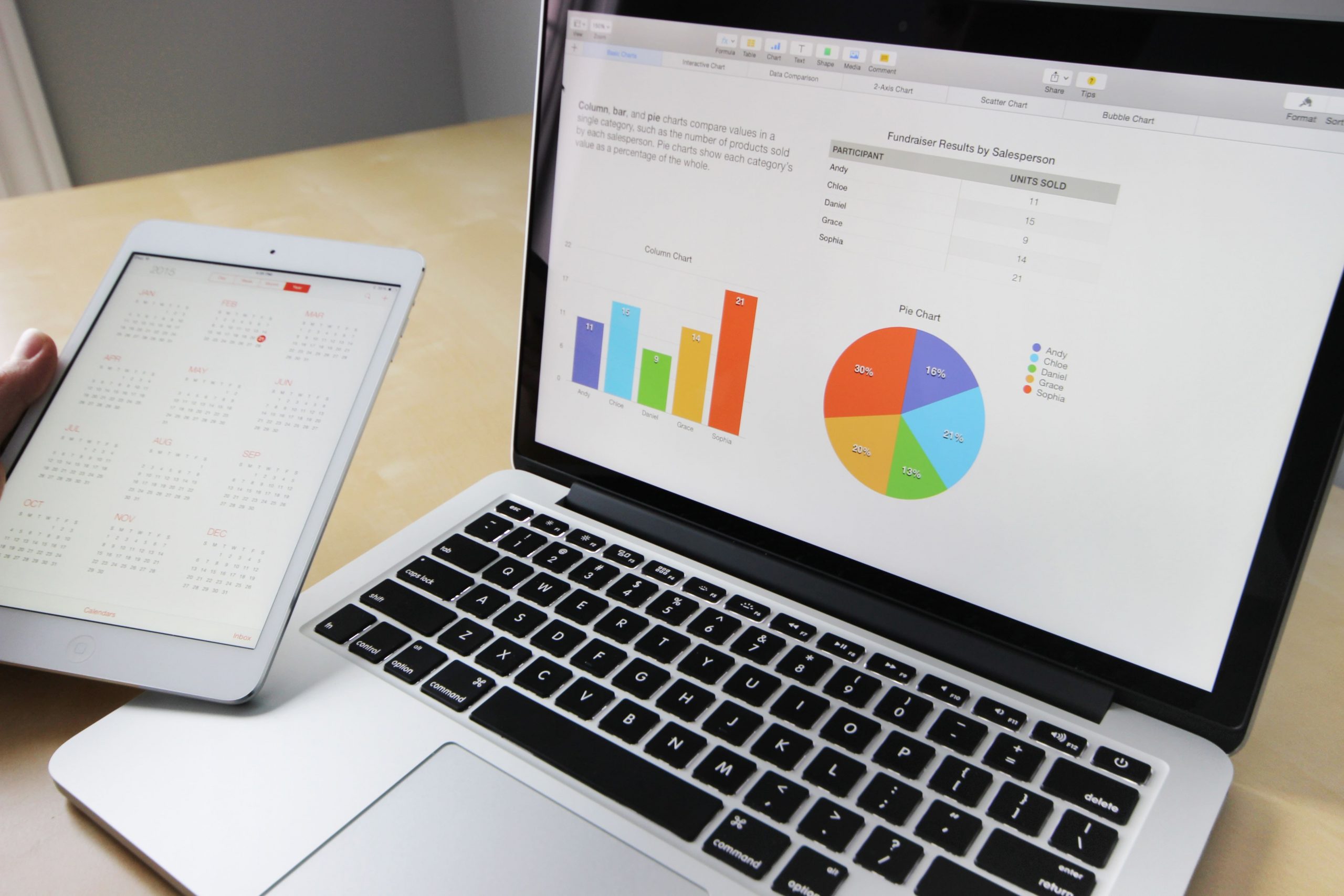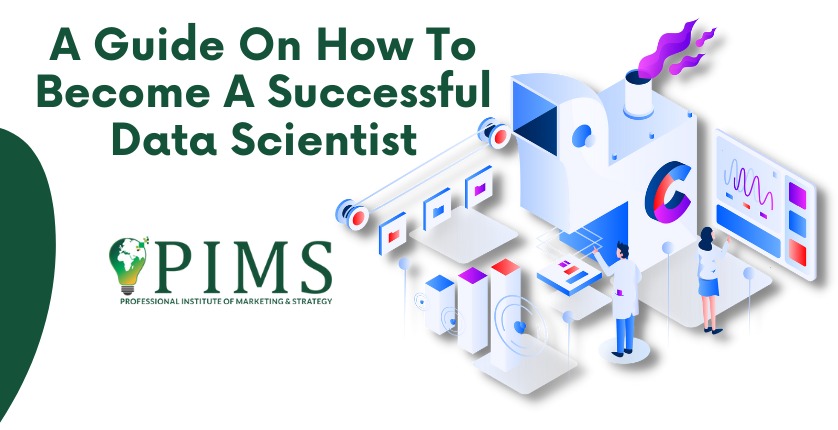A Guide On How To Become A Data Scientist
Being a data scientist can be challenging intellectually, rewarding in the analytical sense, and puts you at the cutting edge of the latest technological advances. Data scientists are becoming more prevalent as big data is becoming more crucial to companies’ decisions. Let’s look at how to become a data scientist, and how you can be one of them.
What does a data scientist do?
A data scientist can perform the following every day:
- Look for patterns and trends within the data to discover new insights
- Develop data models and algorithms to predict outcomes
- Make use of machine learning techniques to improve the quality of information or products.
- Make recommendations available to the other teams and the senior staff
- Use data tools like Python, R, SAS, or SQL for data analysis
- Keep up-to-date with the latest developments in the field of data science.

Data Scientist Vs. Data Analyst, How do they differ?
Becoming a successful data analyst and data scientist could be similar, as both seek out patterns or trends in data that provide new methods for organizations to make better choices about operations. Data scientists, however, have a tendency to be extra accountable and are generally taken into consideration to be advanced to statistics analysts.
Data scientists are typically expected to develop their queries about the data, whereas data analysts may be a part of teams that have already set goals. A data scientist could also create models using machine learning or advanced programming techniques to locate and analyze data.
Why is there a call for Data Scientists?
The data is being created daily at an alarming amount. For processing these massive data sets, the Big Firms and companies are looking for skilled data scientists to discover valuable insights from these enormous data sets and then use them to create different models of business strategies and plans.
Seeing this trend as an opportunity, many professional training institutes craft various data scientist courses.
Skills required to become a data scientist
Being a data scientist typically requires formal education, and one can also apply for a data science course from a certified training institute.
Here are some suggestions to keep in mind.
1. Learn Python
The primary and first Step Towards Data Science should be learning programming technology ( i.e. Python). Python is one of the popular programming languages that Data researchers widely use, due to its ease of use, flexibility. The fact that it comes pre-loaded with powerful libraries ( such as NumPy, SciPy, and Pandas) that are useful for the analysis of data as well as other aspects of Data Science. Python is an open-source language that supports numerous libraries.
2. Learn Statistics
If Data Science is a language, then statistics is the basic Grammar. Statistics is a method of analyzing and elucidating massive data sets. When you’re looking at data analysis and gaining insights, statistical analysis is as fascinating as air for us. Statistics aid us in understanding the details hidden in large databases.
3. Data Collection
This is among the primary actions in the field of Data Science. This ability requires knowing about various tools that transfer data from local and remote systems, such as CSV files, and using scraping to extract data off websites by using the beautiful soup Python libraries. Scrapping can also be an API-based process. Data collection is managed through an understanding of Query Language or ETL pipelines written in Python.
4. Data Cleaning
This is the step where the bulk of the time is spent as a Data Scientist. Cleansing data is obtaining the correct data to be used in analysis and work by removing undesirable values, missing values, categorical values, outliers, and records submitted incorrectly in the raw format of data. Data Cleaning is vital because real-world data is messy, and accomplishing it through different Python libraries(Pandas and NumPy)is crucial for an aspiring Data Scientist.
5. Acquaintance With EDA( Exploratory Data Analysis)
EDA( Exploratory Data Analysis) is the primary and significant aspect of the field of Data Science that is vast. It involves analyzing different variables, data, diverse trends, patterns, and data and extracting relevant insight from them through various graphs and statistical techniques. EDA detects various patterns that machine learning algorithms cannot recognize, and it encompasses every aspect of Data Manipulation, Analysis, and Visualization.
6. Machine Learning & Deep Learning
Machine learning, also known as the most fundamental ability required for becoming a Data Scientist. Machine learning can develop various predictive models, classified models, etc. Big firms and companies utilize it to optimize their plans according to forecasts, for example, Car Price prediction.
Deep Learning, on the contrary, is an enhanced variation of Machine Learning that deploys the use of Neural networks. This framework blends various machine learning algorithms to solve diverse tasks and train data. Many Neural networks are known as recurrent neural networks (RNN) or convolutional neural networks (CNN), and so on.
For Example: Face Recognition
7. Real-World Testing
Testing and validation for The Machine Learning Model after Deployment is required to determine its efficiency and accuracy. Tests are an essential step in Data Science for keeping the effectiveness and efficiency of the model in Check.
8. Learning Deploying ML Model
Deployment is the technique to make the Machine Learning Model available to customer. This is done by connecting the model to the various production environments currently in use, which allows the implementation of the model to different Business solutions.
There are a variety of services available to help you deploy your ML model, such as Flask, Pythoneverywhere, MLOps, Microsoft Azure, Google Cloud, Heroku, etc.
9. Analytical Curiosity
This field of data science is growing faster, so it is necessary to learn more profoundly about the subject and keep upgrading and learning new techniques and skills.
This is the most crucial ability that will help us keep up-to-date with knowledge and skills, which will prevent us from being behind on various Data Science technological advances.
10. Non-Technical Skills
Non-technical means communication skills, teamwork, Management of tasks and understanding of business, etc.
Teamwork is an important part of delivering the results to companies and firms we serve as data scientists.
Communication abilities enable us to communicate our technical thoughts and concepts to various non-technical personnel/ officials of the company.
Task management requires an effective management system and a plan to deliver the desired solution.
Understanding business is crucial to analyzing various issues and providing practical solutions to the challenges in these industries.
These are some of the steps to becoming a successful data scientist.
A simple data science course can help you learn all the skills mentioned above, that are required to become a successful data scientist.


